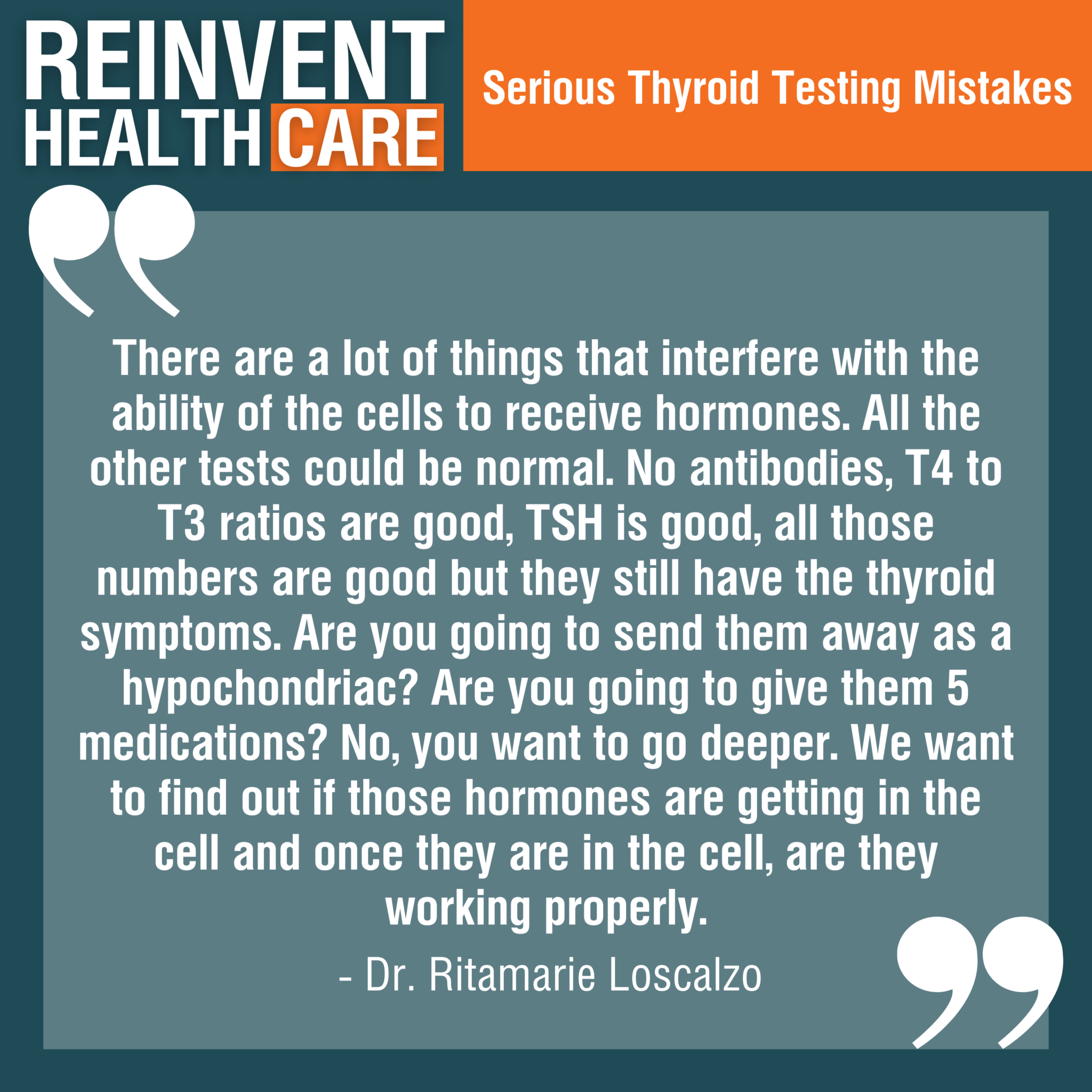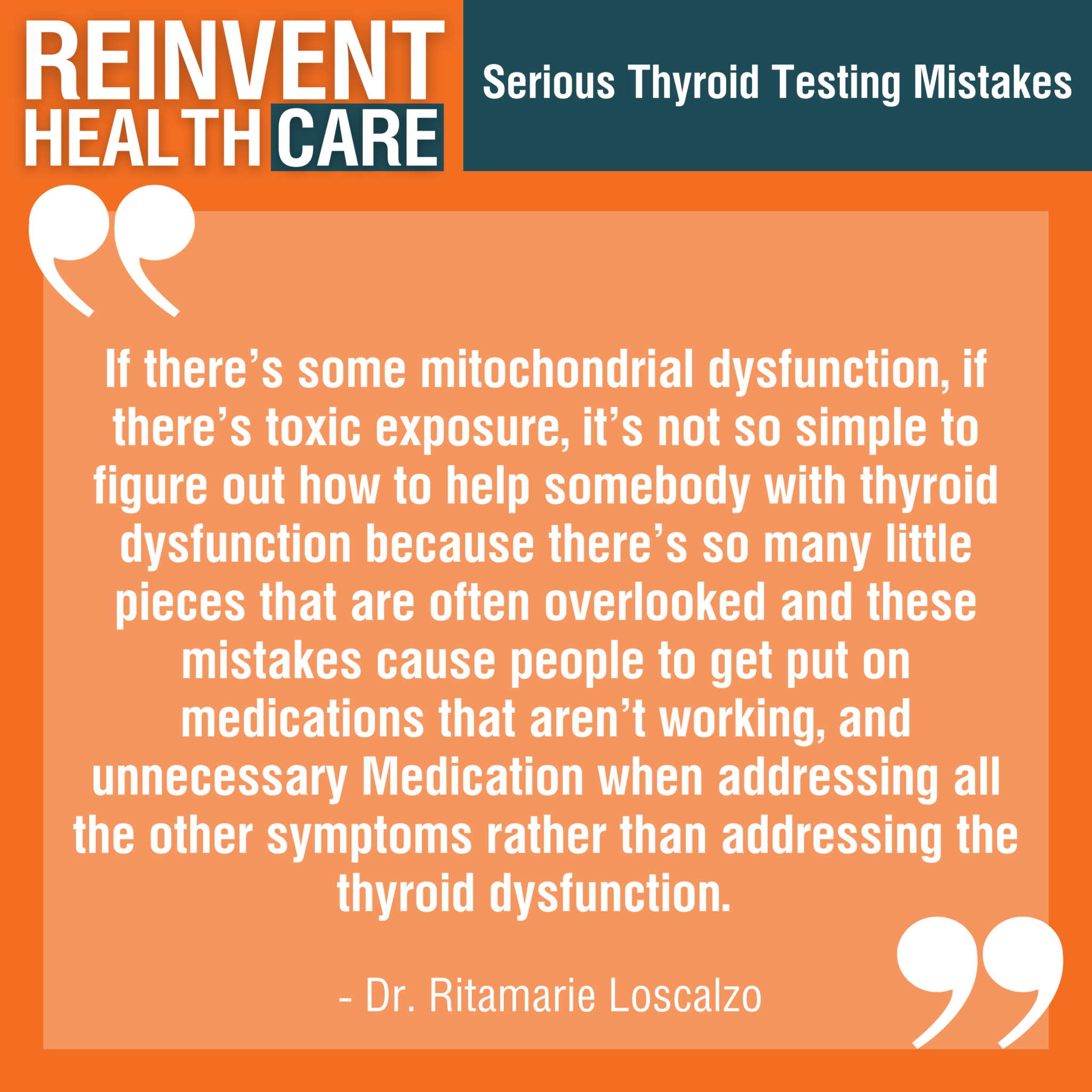Serious Thyroid Testing Mistakes
IN THIS EPISODE:
Reliance on TSH as the Sole Indicator
Doctors often rely solely on testing Thyroid Stimulating Hormone (TSH) levels to diagnose thyroid dysfunction. However, TSH levels might fall within the medically accepted “normal” range, even when a patient exhibits clear symptoms of thyroid dysfunction like dry skin, constipation, high cholesterol, depression, exhaustion, and weight issues. This over-reliance on TSH can lead to misdiagnosis or the dismissal of thyroid-related problems.
Incomplete Testing and Ignoring Symptoms
Not considering a comprehensive thyroid panel. While TSH is important, it should be complemented with tests for total T4, free T4, and free T3 levels. Additionally, antibodies such as thyroid peroxidase (TPO) and antithyroid globulin (TgAB) should be tested to identify autoimmune thyroid conditions. Doctors often ignore a patient's symptoms when conventional tests come back within the “normal” range, rather than considering whether the tests themselves might be inadequate or if other underlying issues are present.
Neglecting Receptor Function and Root Causes
Doctors frequently overlook the importance of receptors that allow thyroid hormones to enter cells and take action. Factors like high homocysteine levels, low vitamin A, stress-induced cortisol imbalances, and toxic exposures can disrupt receptor function and the effectiveness of thyroid hormones. Rather than addressing these root causes, patients are often prescribed medications for individual symptoms without considering the thyroid's underlying dysfunction.
References:
- Get our FREE Guide to Taking a Detailed Health History that gets you to root causes.
- Access Additional Resources for Practitioners ready to improve clinical outcomes through our Nutritional Endocrinology Practitioner Training.
- Check out other episodes on Thyroid here.
- Here’s the free guide for you to help Optimize Thyroid Function.








